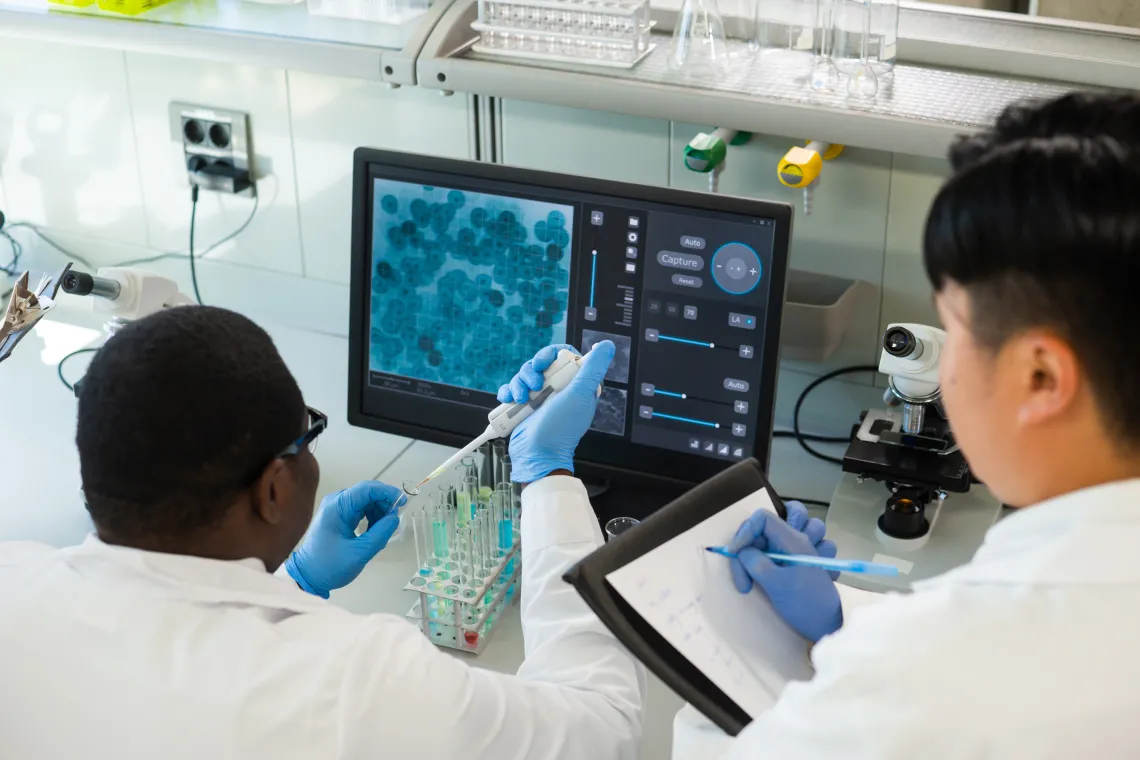Study Urges Regulatory Action to Prevent Harmful Drug Interactions with Key Proteins

A recent publication by R. Ken Coit College of Pharmacy and Southwest Environmental Health Sciences Center (SWEHSC) researchers highlights a specific proteins’ potential to cause adverse drug-drug interactions and argues for regulatory action to ensure both patient safety and intended drug performance.
The article, titled “Addressing the Clinical Importance of Equilibrative Nucleoside Transporters in Drug Discovery and Development,” was published in Clinical Pharmacology & Therapeutics by the American Society for Clinical Pharmacology and Therapeutics.
The research recommends expanding U.S. Food and Drug Administration (FDA) and European Medicines Agency (EMA) guidance to include the equilibrative nucleoside transporters (ENTs) to reduce adverse drug reactions and small-molecule drug-drug interactions. Specifically, ENT1 and ENT2 are proteins involved in transporting essential nucleoside and nucleotide analog drugs that are used to treat various conditions, including viral infections and cancers. For instance, drugs like remdesivir, EIDD-1931, fialuridine and gemcitabine rely on these transporters to reach their intended targets within the body.
If the guidelines are updated, it would require drug developers to test for ENT1 and ENT2 adverse drug interactions before their drug is approved for use.
Among the authors of the article is Nathan Cherrington, Ph.D., who serves as the associate dean of research for the Coit College of Pharmacy and director of SWEHSC. Dr. Cherrington hopes this publication will encourage other regulatory bodies, like the EMA and the Pharmaceuticals and Medical Devices Agency, to revisit guidance concerning ENTs in drug development.
“We raise concerns that drugs which are transported by ENT1 or ENT2 are susceptible to clinically relevant interactions which may result in an elevated risk of adverse reactions,” Dr. Cherrington said. “This risk could lead to increased toxicity or decreased drug effectiveness, ultimately harming patients rather than helping them.”
The study also explores clinical implications related to ENT1 and ENT2, including their interactions with cannabidiol, a compound found in cannabis. Due to the widespread use of cannabis for recreational and medicinal purposes, there is growing concern that its combination with drugs reliant on ENT transport might compromise the effectiveness of those drugs or increase their toxicity.
Additionally, certain therapies used in cancer treatment may affect ENTs, potentially influencing their functionality. Because there is not a uniform risk of adverse interactions across all protein kinase inhibitors, the authors stress the need for further research into potential interactions.
“Our research underscores the necessity of reevaluating ENTs to ensure that medications are not only effective but also safe for those who depend on them,” Dr. Cherrington said.

